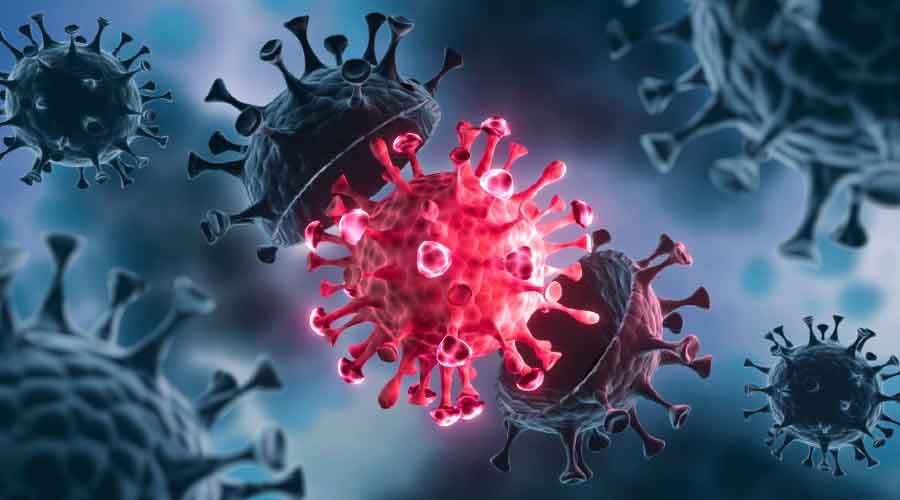Several strains of the coronavirus may be at play globally now but scientists should still focus on the original strain because many countries and populations have yet to get a vaccine for that, a virologist told a conclave on infectious diseases in the city on Friday.
Underlined in what the virologist said was the need to immunise people against Covid even in the remotest pockets.
“Vaccine formulations need to continue to incorporate the original Wuhan strain. It would be a very negative step if manufacturers were to say ‘abandon everything and run after an Omicron variant’ .… That would be a big setback for countries still playing catch up with their vaccination,” said Priya Abraham, director of the National Institute of Virology, Pune.
“Experts state that the original COVID 19 virus strain stays and then attempts be made to incorporate a new variant through formulations such as bivalent vaccines (vaccines that contain two different viruses), as a booster dose, in order to broaden the immune response ” she said.
Abraham was addressing the 12th annual conference of The Clinical Infectious Diseases Society, being held at a city hotel from Friday to Sunday.
All the existing Covid vaccines are based on the ancestral virus (SARS-CoV-2) that originated in Wuhan in China in late 2019.
The virus’s mutations have prompted a global search for what is being called a pan-coronavirus vaccine that can neutralise future variants.
“But if researchers start focusing only on vaccines containing newly emerging variants, it will impact vaccine equity. Booster vaccine doses could include the ancestral Wuhan strain as well as the possible newer variants to broaden the immune response,” Abraham said.
“In the search for these broadly reactive and more durable vaccines, the challenges seem humongous. But what researchers seem to convey to us is that it is not going to be such an impossible task as we have battled with possible HIV and even a pan-influenza vaccine, which was a quest for many years. Researchers think that this may be an achievable feat,” she said.
Chandramouli Bhattacharya, infectious diseases specialist and one of the chairs of the session, told Metro that there was a template.
“Along the lines of a universal flu jab that offers protection against multiple subtypes of respiratory virus, the search is on for a pan-coronavirus vaccine that can fight future variants of SARS-CoV-2,” Bhattacharya said.
In another session, an infectious diseases expert spoke on fungal infections in Covid.
“The top risk factors for fungal infections in Covid include comorbidities like diabetes, widespread use of antibiotics and prolonged ICU care for critically ill patients,” said Atul Patel, chief consultant and director of the department of infectious diseases at Sterling Hospital in Ahmedabad.
He talked of Covid-associated mucormycosis (CAM), commonly called black fungus.
In 2021, a surge in cases of a rare “black fungus” infection affecting thousands of critically ill Covid patients caused alarm in India.
“Diabetes is an important predisposing factor behind mucormycosis,” Patel said.
